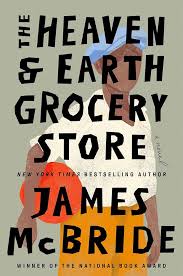Chapter 21: The Marble
byChapter 21: The Marble begins as Dodo’s world turns inside out. Thrust from a cozy space behind Miss Chona’s store into the chaos of Ward C‑1 at Pennhurst, the shift felt like plunging into an abyss. The smell, the noise, and the blur of drug-induced disorientation stripped him of control, leaving only confusion and pain. His body, once full of energy, lay trapped in traction. Though terrifying, the restraint spared him from further injury and gave his limbs time to heal. The mental toll, however, was enormous—patients howled, muttered, and wandered like phantoms. Dodo could barely tell staff from patients, which made the neglect and rough handling feel even more surreal. Yet in this bleak place, something unexpected sparked hope: a boy called Monkey Pants. Unlike everyone else, this boy carried a spark of curiosity—and a single blue marble hidden under his pillow.
Communication between the two was rough at first. Dodo could speak, though he couldn’t hear clearly, and Monkey Pants could hear but barely move or control his speech. Yet their shared isolation birthed determination. Despite physical limitations, Monkey Pants used gestures, expressions, and eventually a finger-based code to connect. A thumb meant “A,” and so on, as they created an entire alphabet between them. The marble became a bridge—Dodo’s obsession and Monkey Pants’s mystery. Hours passed with them deciphering meaning, fumbling through signs, and crying out of frustration. Their language, built from need and loneliness, became a lifeline. It gave Dodo something he hadn’t had since arriving: purpose and attention from someone who seemed to truly see him. The marble—more than just glass—became a symbol of memory, love, and unspoken pain.
Dodo’s fixation on the marble stemmed from something deeper: a yearning for home. He longed for the comfort of his aunt and uncle and believed, at first, they were gathering marbles to surprise him. But as days dragged on without visitors, that illusion cracked. Yet Monkey Pants’s willingness to share—even if he refused to reveal its origin at first—offered Dodo something else: forgiveness. That small object held the essence of Chona’s kindness, the warmth of family, and the faint belief that he hadn’t been abandoned forever. The breakthrough came when Monkey Pants finally spelled it out: M‑Y M‑O-T-H-E‑R. Dodo’s heart leapt. But no sooner had he absorbed the meaning than Monkey Pants’s mood shifted sharply to fear.
Danger had entered the ward in the form of a tall, well-built Black attendant. His movements were calm, his face unreadable, and his voice soft. Yet something about his presence sent Monkey Pants into a silent panic. Dodo, who’d yearned for a tender touch, briefly felt the warmth of a hand that didn’t jostle him in pain—but the moment quickly turned ominous. The man’s caress lingered too long, and it traveled too far. That kind touch twisted into a violation. As the man walked away with an eerie smile and a repeated phrase—“Pretty as a peacock”—Dodo froze. The ward’s chaos faded into a chilling stillness. Monkey Pants, wide-eyed and frantic, shook his crib and gestured furiously. Dodo’s innocence, already fragile, splintered under the weight of unspoken danger.
This chapter reveals not only the resilience of children in the face of horror but also the crucial importance of connection. Monkey Pants and Dodo built their own language—something extraordinary from their limited means—and used it to resist the crushing isolation of Pennhurst. Their code, formed with time and effort, represents survival through understanding. Studies in developmental psychology show that children, especially those in institutional settings, are more likely to thrive when given opportunities to communicate and be seen as individuals. Dodo and Monkey Pants created just that, even while surrounded by neglect and trauma. Their bond becomes a haven in a world that treated them as disposable. The marble, in this context, becomes more than a toy—it becomes a silent promise of memory, humanity, and the will to endure.


